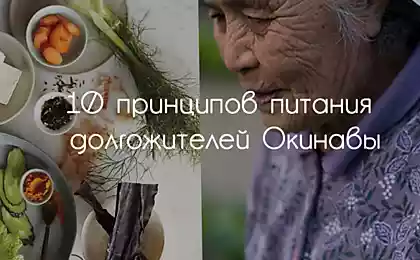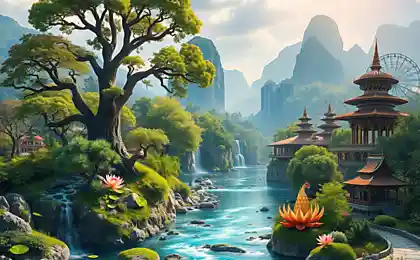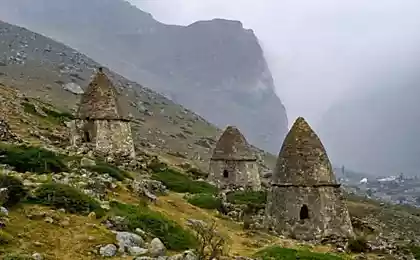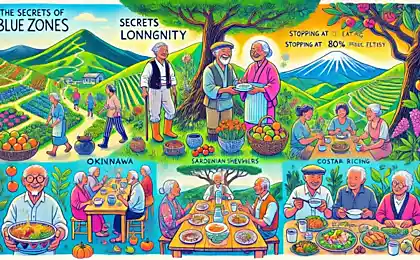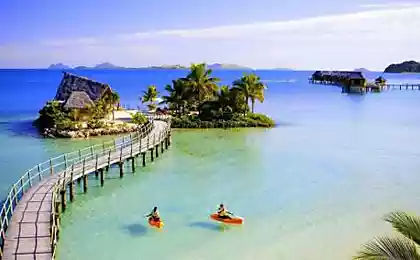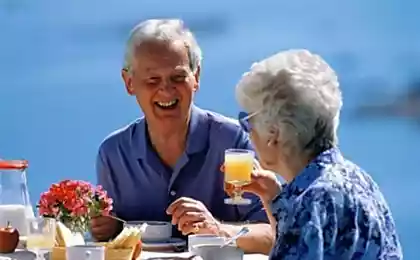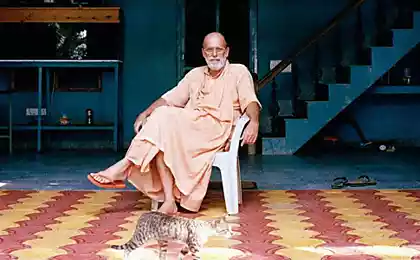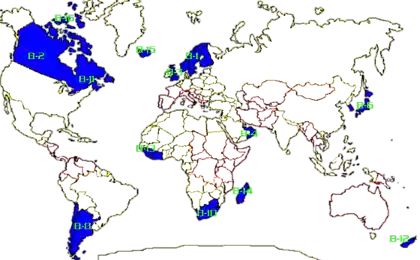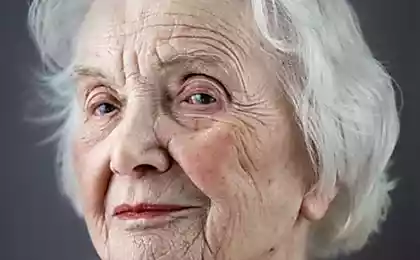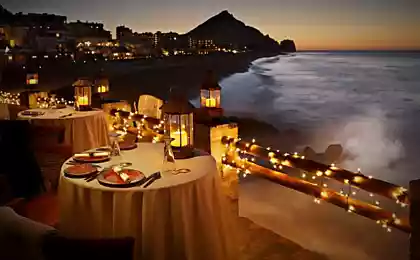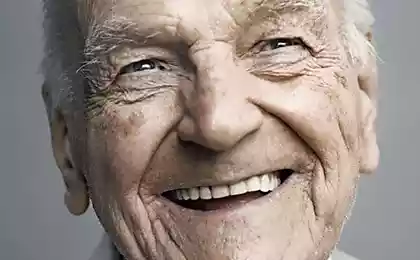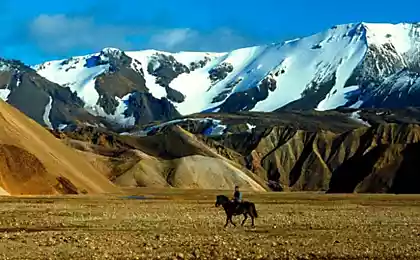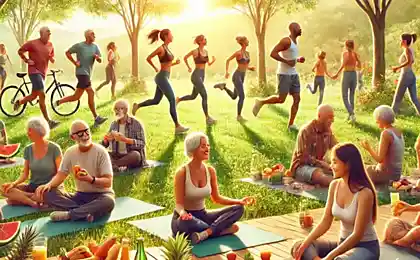794
Okinawa world's center of longevity: there are 319 centennial people
Japan. Hundreds of years this mysterious country was cut off from the outside world. Only in the late nineteenth century, the iron curtain was raised, and in the XX country became the birthplace of the economic miracle. Modern Japan shows other miracles. Its citizens live longer than any people on the planet. Average — 82. A significant contribution to this achievement contributes to tropical Okinawa. The southernmost of the Japanese Islands — a world record for the number of centenarians.
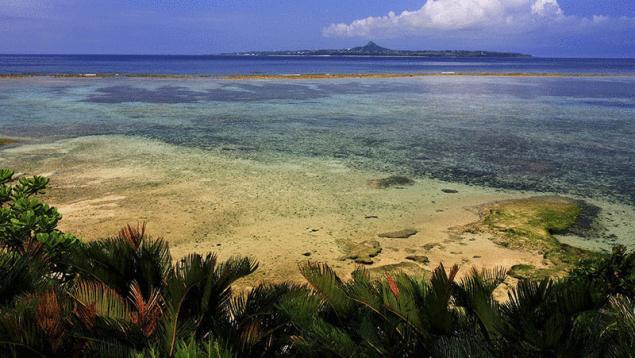
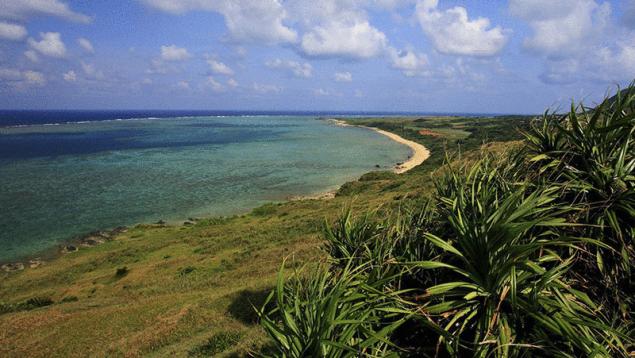
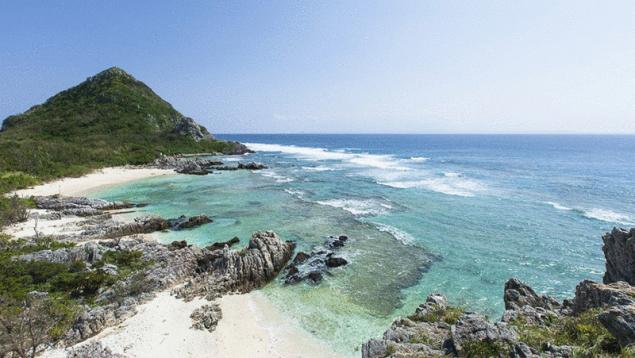
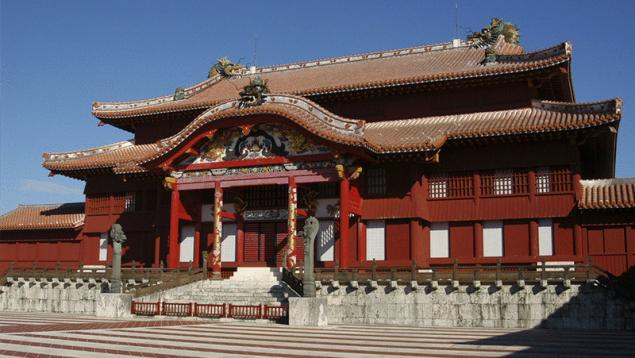
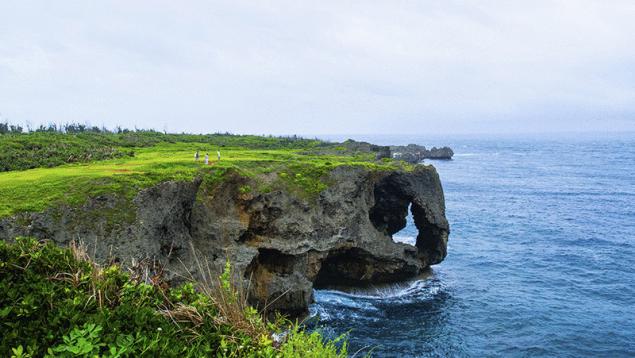
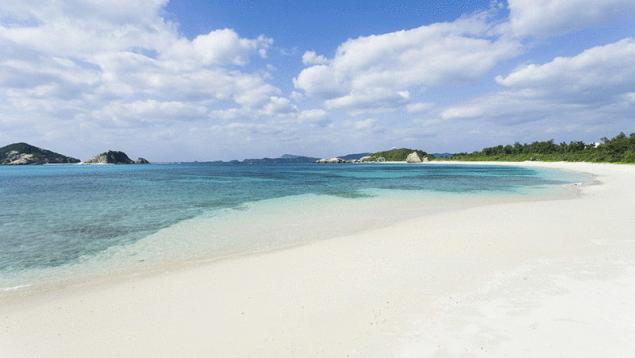
Sun Okinawa is not a typical Japanese region. 450 years this territory was an independent state — the Kingdom of Ryukyu with its own laws, customs and language. Territorial unit of Japan the island was only in 1872. The current Okinawa is one of the smaller prefectures of Japan and the only place in Japan where it never snows.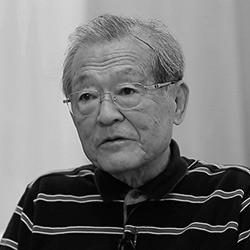
Makoto Suzuki, a cardiologist
Okinawa is one of the few places on earth where longevity study since the 70-ies of the last century. The pioneer of these studies was a cardiologist Makoto Suzuki. Before him stood a task — to improve local healthcare. Almost immediately the capital medic was faced with an unexpected problem: most of his old players not needed treatment. Even if they were over 100 years old.
After examining all Okinawan veteran revealed — 90% of them were healthy. This amazing fact has determined the direction of scientific work of the future Professor.
— During my work I was interested in genetic factors. And I am sure that heredity plays a big role. But what is interesting about 200,000 Okinawans live in Brazil. We conducted a comparative analysis and found out that the life expectancy of the Brazilian Okinawans are much shorter. Immigrants and their descendants, away from the island, live on average 17 years less than the Okinawans, living at home. It turns out, the external environment is more important than the genetic component, says Makoto Suzuki.
— I think there are four factors: nutrition education, physical activity, a system of mutual support and demeanor. In the case of physical and social health is more or less clear. With a demeanor more difficult. But I am sure the lifestyle of the Okinawans is what distinguishes them from the rest of the Japanese. The Japanese are quite introverted, closed people. The Okinawans are more open.
80-year-old Professor Suzuki for retirement is not going to. Together with colleagues he regularly updates his unique archive. On these shelves — information about all Okinawan centenarians. Among hundreds of white folders is a personal matter Ageny Shiga.
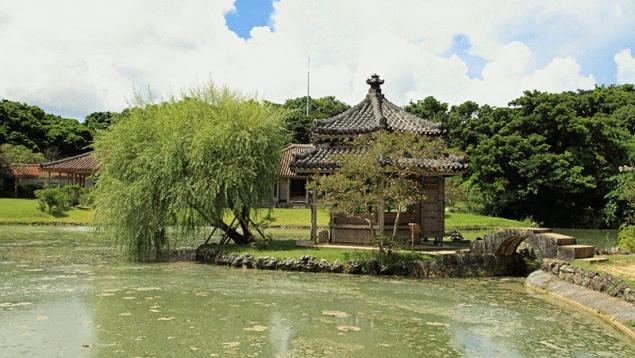
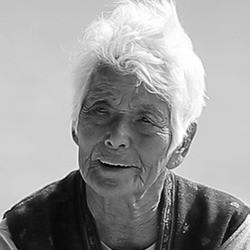
Agena Shiga, 100 years
The current population of Maebaru — about 200 people. When this woman was born in the village was no more than 30 people.
— It was hard. My grandfather was a fisherman, that caught, my grandmother on the market sold, says Agena. — Every day a basket of fish carried. I'm still surprised that my legs were still fine. Previously, because water was not — I from school would carry water in the garden helped. I still have all the housework she was doing. Cleaned, cooked.
Almost all of this woman's life tied to the sea. From her house to the shore less than a minute walk. Most of my free time. spends on the beach.
— I'm at the Bank every day walk. I try to go barefoot. Even if the rain is still going out. We are here often with their neighbors going. Sitting on the sand, talking. In order to live long, not to become a vegetable, we should all feel good about, to communicate with everyone, to have a lot of friends. Personally, I remain alone, only when eating. I would like sugarcane to grow. The land is free we have, but the family forbid me. Say, do you remember, how old are you?! As you will be the one in the dig? And I think, if you want to live long — it is necessary to do something.
Okinawa — the international longevity center. Today it is home to 319 a century the people of a Small Japanese Okinawa — the international longevity center. Today it is home to centennial 319 people. This fantastic figure could not prevent even the bloody battles of the Second world war. The result of the battle of Okinawa killed almost a third of the inhabitants of the island, most of the settlements were completely destroyed. From Central Naha city is now left with just one street. So hundreds of years ago looked a prestigious district of the capital.
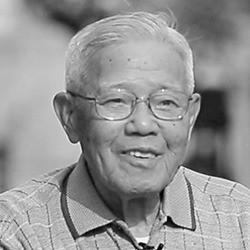
Yamakawa Fumes, 93
One of the most famous Okinawan centenarians also starts his day with heavy exercise. To see this unusual picture, you need to be at the beach at 6 am.
This small beach is very popular among older residents of Naha. An hour before dawn here already engaged group of retired athletes. Typically, the first always appears this man is very old.
Headstand — proof exceptional physical shape and longevity. It is noteworthy that this difficult exercise, he first performed at age 40. 25 years later Mr. Yamakawa debuted at the marathon distance.
— Regularly jog I started at 55. 65 I mastered the marathon in Naha. Rather late, isn't it? In 69 I learned that we have competitions for seniors in athletics. Since I participate in them. Hammer toss, and long jump.
The sports career of the veteran started after his retirement. Early in the sport in Mr. Yamakawa just not enough time. Most of his life he was seriously involved in Finance. His career survivor graduated at the helm in the Bank "Ryukyu".
In Russia, retirement is a border active, fulfilling life in Japan the situation is different. As a member of a cohesive society based on work after retirement, every Japanese person gets the opportunity to realize those desires that have not yet been implemented before this age. It is on pensioners, oddly enough, in Japan kept most of the volunteer organizations. The life of the Japanese after his retirement brighter. Yamakawa Fumiyasu party of several public organizations. Among his Hobbies — calligraphy, painting, gardening and collecting rocks. But in the first place, of course, sports.
Now I'm getting ready to set a record for the elderly in hammer throwing. Next goal is 95 years to make a long jump. None of the Japanese have not done this yet. And the main dream — to get on the treadmill in a hundred years. But I want you to clearly understand: I'm not doing athletics for health. I'm healthy because get pleasure from your favorite things. This is what I live for. We have in Okinawa is called "ikigai".
"IKI" is "live", "guy" — "value." But not the price, as in the case of the meaning of life for Europeans, namely the life-giving force which helps you to continue to live.
Ikigai — a key concept of Okinawan philosophy. Almost every Islander did not hesitate to answer, what is the main component of its happy existence.
Okinawans rarely ask ourselves about the meaning of life, they do not know the sadness and boredom. Here for hundreds of years such problems the inhabitants of the island decide to work together, with the help of friendly unions — the moai. This unique phenomenon has arisen spontaneously. Earlier the participants moai has provided financial, physical and social support. Today the main principle of such unions common interests.
Scientists-gerontologists believe ikigai and moai unique components of Okinawan longevity. Most of the residents there and others that are uncharacteristic for modern society features.
Locals leisurely. Very good attitude about being late, not nervous, not worried, and don't hold grudges. Okinawa is still preserved communal way of reciprocity. Even in Okinawan dialect this word "ukaru". "Maru" is "circle". For example, if you build all of the company's employees, apparently will not determine which of them is the head. Also in Okinawa, no expensive cars, everybody here is driving the same. It is also a manifestation of equality.
A former banker of Yamakawa Fumes moves through the city... by bike. In the modest apartment of the survivor will not find luxury. The main value in his house — a collection of sports memorabilia. Over the last 20 years, this grandpa 139 times was on the podium.
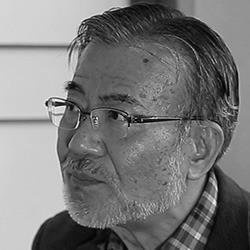
Kazuhiko Taira, Professor
In the twentieth century Okinawa has experienced hard times. The Japanese economic miracle bypassed the land side. Until 1972 the island was under direct control of the United States. Despite this, locals managed to maintain the traditional system of relations and customs, peculiar to their ancestors. And power system on the island virtually unchanged for hundreds of years.
Professor Kazuhiko Taira knows all about Okinawan cuisine. With 80-ies of the last century, he examines it from a scientific point of view.
Various seaweed, vegetables and tofu are the most common products on Okinawan cuisine. In addition to them, the daily diet of the islanders consists of pork and seafood. For example, thinly sliced raw fish, sashimi.
Okinawan food is very diverse. It is based on the balance of all the components without any extremes and excesses. Scientists 30 years compared Okinawan diet with the diet of the inhabitants of other countries. And came to the conclusion that the Okinawan food system — the Foundation of a healthy lifestyle and longevity.
According to the statistics of Professor Taira, local centenarians almost sick with stomach cancer. Among the Okinawans is the lowest in Japan, the percentage of obese people. There are several reasons. In particular, whatever ate Okinawa, all food will be decomposed in small portions. Is moderate in these places — the ancient tradition of "Hara hachi BU".
"Hara" is our body, "belly", and "hachi BU" means "80%". This suggests that it is not necessary to eat completely. Always leave a small place. This is the key to health.
Also Okinawa ranks last in Japan's consumption of salt. For a very long time. So there are a few strokes and cardiovascular diseases.
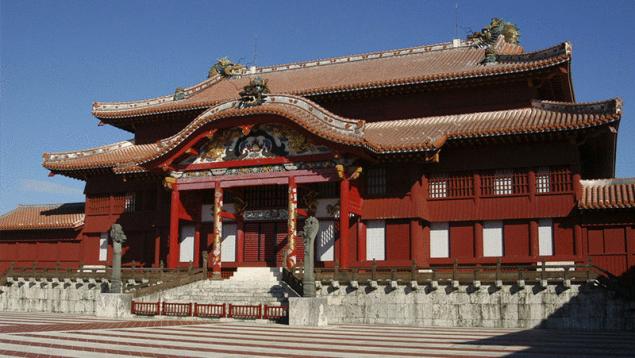
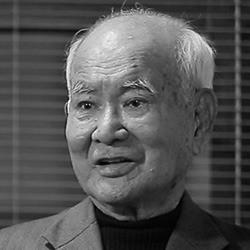
Itokazu, Iwao, 101
Itokazu, Iwao was born 100 km from Okinawa on the nearby island of Kume. The first half of his life — time of hardship. The most difficult moments associated with the Second world war. In August 1945, 30-year-old artilleryman, Itokazu been found in Chinese Manchuria.
— Manchuria became to come the Soviet troops. They fired at us every day from their shells nowhere to hide. My battery was completely destroyed. Me severe concussions and was wounded in the leg. I woke up in a Russian hospital.
From the camp of prisoners of war strong Japanese sent to Central Asia. Until 1950 Okinawan built hydroelectric power station in the Soviet Republic. Itokazu still surprises surrounding phrases in the Russian language.
I think my main secret is my family. I have seven children, 30 grandchildren and 40 great-grandchildren. The names of some of them I don't remember about me but they never forget the care, support, constantly come to visit. Every day they give me joy and strength to live.
According to gerontologists, social isolation for older people brings harm, comparable to Smoking. Friendly family and a wide circle of friends is able to prolong human life. The fight against loneliness becomes one of the rules for Okinawan longevity.
The advice is simple: live without regard to time. Don't be afraid of something not to do. But at the same time stick to a certain rhythm. Roughly speaking, follow the regime. Important and strong social connections, and communication. All our centenarians communicate with family, friends. And finally, ikigai — you need to have an occupation or hobby that delights you every day, brings satisfaction and gives extra years of life.
Healthy, active and happy old age is the result of daily effort. Good genetics and heredity play an important but not dominant role. This means that the lifespan of almost every human in his own hands. published
P. S. And remember, only by changing their consumption — together we change the world! ©
Source: project.moya-planeta.ru/pravila_zhizni_stoletnego_cheloveka_okinava/






Sun Okinawa is not a typical Japanese region. 450 years this territory was an independent state — the Kingdom of Ryukyu with its own laws, customs and language. Territorial unit of Japan the island was only in 1872. The current Okinawa is one of the smaller prefectures of Japan and the only place in Japan where it never snows.

Makoto Suzuki, a cardiologist
Okinawa is one of the few places on earth where longevity study since the 70-ies of the last century. The pioneer of these studies was a cardiologist Makoto Suzuki. Before him stood a task — to improve local healthcare. Almost immediately the capital medic was faced with an unexpected problem: most of his old players not needed treatment. Even if they were over 100 years old.
After examining all Okinawan veteran revealed — 90% of them were healthy. This amazing fact has determined the direction of scientific work of the future Professor.
— During my work I was interested in genetic factors. And I am sure that heredity plays a big role. But what is interesting about 200,000 Okinawans live in Brazil. We conducted a comparative analysis and found out that the life expectancy of the Brazilian Okinawans are much shorter. Immigrants and their descendants, away from the island, live on average 17 years less than the Okinawans, living at home. It turns out, the external environment is more important than the genetic component, says Makoto Suzuki.
— I think there are four factors: nutrition education, physical activity, a system of mutual support and demeanor. In the case of physical and social health is more or less clear. With a demeanor more difficult. But I am sure the lifestyle of the Okinawans is what distinguishes them from the rest of the Japanese. The Japanese are quite introverted, closed people. The Okinawans are more open.
80-year-old Professor Suzuki for retirement is not going to. Together with colleagues he regularly updates his unique archive. On these shelves — information about all Okinawan centenarians. Among hundreds of white folders is a personal matter Ageny Shiga.


Agena Shiga, 100 years
The current population of Maebaru — about 200 people. When this woman was born in the village was no more than 30 people.
— It was hard. My grandfather was a fisherman, that caught, my grandmother on the market sold, says Agena. — Every day a basket of fish carried. I'm still surprised that my legs were still fine. Previously, because water was not — I from school would carry water in the garden helped. I still have all the housework she was doing. Cleaned, cooked.
Almost all of this woman's life tied to the sea. From her house to the shore less than a minute walk. Most of my free time. spends on the beach.
— I'm at the Bank every day walk. I try to go barefoot. Even if the rain is still going out. We are here often with their neighbors going. Sitting on the sand, talking. In order to live long, not to become a vegetable, we should all feel good about, to communicate with everyone, to have a lot of friends. Personally, I remain alone, only when eating. I would like sugarcane to grow. The land is free we have, but the family forbid me. Say, do you remember, how old are you?! As you will be the one in the dig? And I think, if you want to live long — it is necessary to do something.
Okinawa — the international longevity center. Today it is home to 319 a century the people of a Small Japanese Okinawa — the international longevity center. Today it is home to centennial 319 people. This fantastic figure could not prevent even the bloody battles of the Second world war. The result of the battle of Okinawa killed almost a third of the inhabitants of the island, most of the settlements were completely destroyed. From Central Naha city is now left with just one street. So hundreds of years ago looked a prestigious district of the capital.

Yamakawa Fumes, 93
One of the most famous Okinawan centenarians also starts his day with heavy exercise. To see this unusual picture, you need to be at the beach at 6 am.
This small beach is very popular among older residents of Naha. An hour before dawn here already engaged group of retired athletes. Typically, the first always appears this man is very old.
Headstand — proof exceptional physical shape and longevity. It is noteworthy that this difficult exercise, he first performed at age 40. 25 years later Mr. Yamakawa debuted at the marathon distance.
— Regularly jog I started at 55. 65 I mastered the marathon in Naha. Rather late, isn't it? In 69 I learned that we have competitions for seniors in athletics. Since I participate in them. Hammer toss, and long jump.
The sports career of the veteran started after his retirement. Early in the sport in Mr. Yamakawa just not enough time. Most of his life he was seriously involved in Finance. His career survivor graduated at the helm in the Bank "Ryukyu".
In Russia, retirement is a border active, fulfilling life in Japan the situation is different. As a member of a cohesive society based on work after retirement, every Japanese person gets the opportunity to realize those desires that have not yet been implemented before this age. It is on pensioners, oddly enough, in Japan kept most of the volunteer organizations. The life of the Japanese after his retirement brighter. Yamakawa Fumiyasu party of several public organizations. Among his Hobbies — calligraphy, painting, gardening and collecting rocks. But in the first place, of course, sports.
Now I'm getting ready to set a record for the elderly in hammer throwing. Next goal is 95 years to make a long jump. None of the Japanese have not done this yet. And the main dream — to get on the treadmill in a hundred years. But I want you to clearly understand: I'm not doing athletics for health. I'm healthy because get pleasure from your favorite things. This is what I live for. We have in Okinawa is called "ikigai".
"IKI" is "live", "guy" — "value." But not the price, as in the case of the meaning of life for Europeans, namely the life-giving force which helps you to continue to live.
Ikigai — a key concept of Okinawan philosophy. Almost every Islander did not hesitate to answer, what is the main component of its happy existence.
Okinawans rarely ask ourselves about the meaning of life, they do not know the sadness and boredom. Here for hundreds of years such problems the inhabitants of the island decide to work together, with the help of friendly unions — the moai. This unique phenomenon has arisen spontaneously. Earlier the participants moai has provided financial, physical and social support. Today the main principle of such unions common interests.
Scientists-gerontologists believe ikigai and moai unique components of Okinawan longevity. Most of the residents there and others that are uncharacteristic for modern society features.
Locals leisurely. Very good attitude about being late, not nervous, not worried, and don't hold grudges. Okinawa is still preserved communal way of reciprocity. Even in Okinawan dialect this word "ukaru". "Maru" is "circle". For example, if you build all of the company's employees, apparently will not determine which of them is the head. Also in Okinawa, no expensive cars, everybody here is driving the same. It is also a manifestation of equality.
A former banker of Yamakawa Fumes moves through the city... by bike. In the modest apartment of the survivor will not find luxury. The main value in his house — a collection of sports memorabilia. Over the last 20 years, this grandpa 139 times was on the podium.

Kazuhiko Taira, Professor
In the twentieth century Okinawa has experienced hard times. The Japanese economic miracle bypassed the land side. Until 1972 the island was under direct control of the United States. Despite this, locals managed to maintain the traditional system of relations and customs, peculiar to their ancestors. And power system on the island virtually unchanged for hundreds of years.
Professor Kazuhiko Taira knows all about Okinawan cuisine. With 80-ies of the last century, he examines it from a scientific point of view.
Various seaweed, vegetables and tofu are the most common products on Okinawan cuisine. In addition to them, the daily diet of the islanders consists of pork and seafood. For example, thinly sliced raw fish, sashimi.
Okinawan food is very diverse. It is based on the balance of all the components without any extremes and excesses. Scientists 30 years compared Okinawan diet with the diet of the inhabitants of other countries. And came to the conclusion that the Okinawan food system — the Foundation of a healthy lifestyle and longevity.
According to the statistics of Professor Taira, local centenarians almost sick with stomach cancer. Among the Okinawans is the lowest in Japan, the percentage of obese people. There are several reasons. In particular, whatever ate Okinawa, all food will be decomposed in small portions. Is moderate in these places — the ancient tradition of "Hara hachi BU".
"Hara" is our body, "belly", and "hachi BU" means "80%". This suggests that it is not necessary to eat completely. Always leave a small place. This is the key to health.
Also Okinawa ranks last in Japan's consumption of salt. For a very long time. So there are a few strokes and cardiovascular diseases.


Itokazu, Iwao, 101
Itokazu, Iwao was born 100 km from Okinawa on the nearby island of Kume. The first half of his life — time of hardship. The most difficult moments associated with the Second world war. In August 1945, 30-year-old artilleryman, Itokazu been found in Chinese Manchuria.
— Manchuria became to come the Soviet troops. They fired at us every day from their shells nowhere to hide. My battery was completely destroyed. Me severe concussions and was wounded in the leg. I woke up in a Russian hospital.
From the camp of prisoners of war strong Japanese sent to Central Asia. Until 1950 Okinawan built hydroelectric power station in the Soviet Republic. Itokazu still surprises surrounding phrases in the Russian language.
I think my main secret is my family. I have seven children, 30 grandchildren and 40 great-grandchildren. The names of some of them I don't remember about me but they never forget the care, support, constantly come to visit. Every day they give me joy and strength to live.
According to gerontologists, social isolation for older people brings harm, comparable to Smoking. Friendly family and a wide circle of friends is able to prolong human life. The fight against loneliness becomes one of the rules for Okinawan longevity.
The advice is simple: live without regard to time. Don't be afraid of something not to do. But at the same time stick to a certain rhythm. Roughly speaking, follow the regime. Important and strong social connections, and communication. All our centenarians communicate with family, friends. And finally, ikigai — you need to have an occupation or hobby that delights you every day, brings satisfaction and gives extra years of life.
Healthy, active and happy old age is the result of daily effort. Good genetics and heredity play an important but not dominant role. This means that the lifespan of almost every human in his own hands. published
P. S. And remember, only by changing their consumption — together we change the world! ©
Source: project.moya-planeta.ru/pravila_zhizni_stoletnego_cheloveka_okinava/

